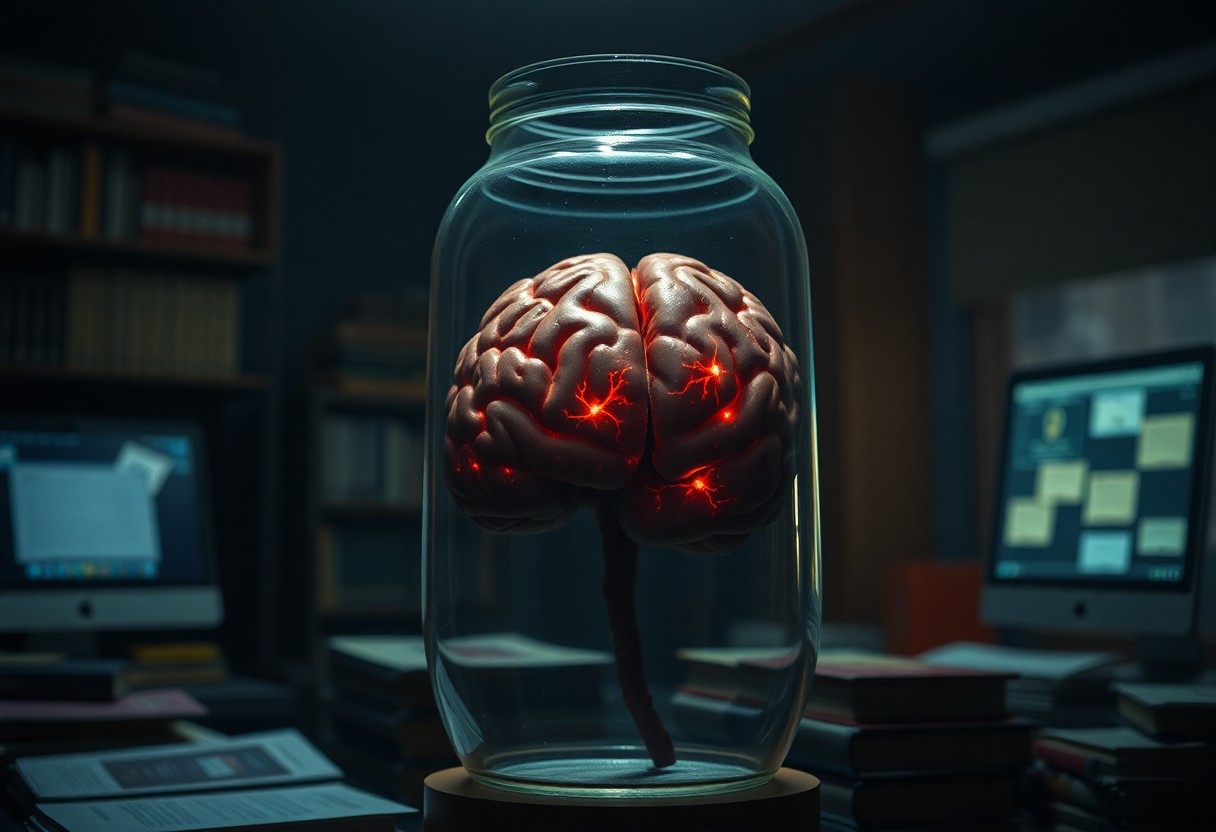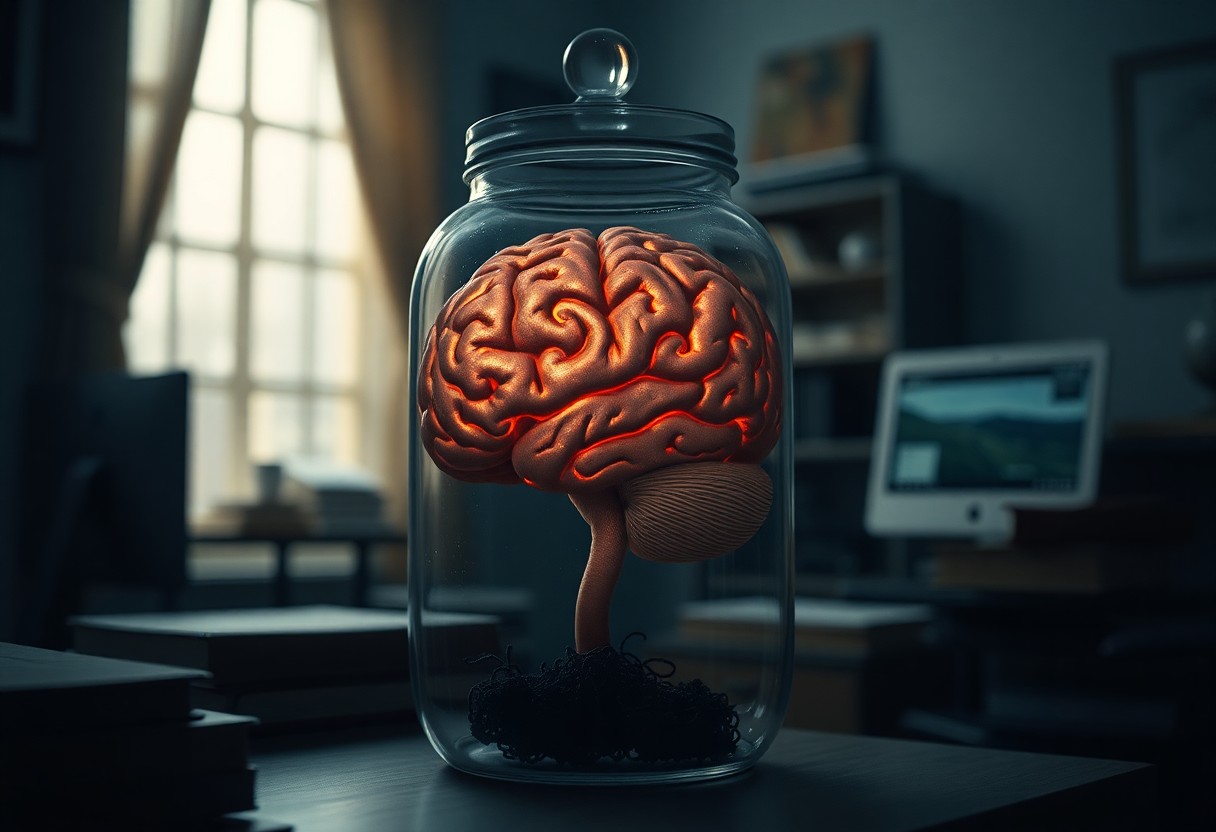Many people may not realize the impact excessive screen time has on your cognitive health, leading to what is now commonly referred to as “brain rot.” This term encapsulates the negative effects of overconsumption of trivial online content on your mental and emotional state. As you navigate through endless scrolling and digital distractions, it’s vital to understand how these habits can harm your brain function and overall well-being. In this post, you will learn more about brain rot, its symptoms, and how to mitigate its effects.
Defining Brain Rot
A term gaining prominence in today’s digital age, “brain rot” refers to the deterioration of your mental and intellectual state due to excessive consumption of trivial online content. As screen time accumulates, you may find it increasingly difficult to focus, learn, and engage with the world around you. Experts caution that brain rot can impede cognitive health, leading to emotional issues and impaired functioning.
Origins of the Term
The term “brain rot” was identified as Oxford’s Word of the Year for 2024, marking a significant increase in its usage by 230 percent between 2023 and 2024. It encompasses cognitive and emotional issues stemming from an overload of low-value, distracting online material, reflecting growing concerns about how digital consumption affects your overall mental well-being.
Symptoms and Cognitive Impacts
Behind the concept of brain rot lies a variety of symptoms that can affect your cognitive function. You might experience persistent challenges in concentration, memory retention, and emotional regulation due to excessive screen time. These impairments can resemble early signs of cognitive decline, making it important to recognize the potential long-term consequences of your digital habits.
Impacts of brain rot extend beyond temporary distractions; they can significantly affect your cognitive capabilities and emotional health. For instance, consistent impairments in concentration and difficulty recalling recent events can arise, which may lead to increased stress and frustration. As you engage in mind-numbing content, your brain’s neuroplasticity—the ability to form new connections and adapt—diminishes, ultimately hindering your cognitive and behavioral functions. Recognizing and addressing these symptoms early can improve your overall mental health.
The Mechanism of Brain Rot
If you find yourself constantly distracted or unable to focus, you may be experiencing the beginning stages of brain rot. This phenomenon arises from excessive screen time, which can inhibit your cognitive functions and emotional well-being. The easy accessibility of digital content leads to mindless consumption, reducing your capacity for meaningful engagement and impacting your neuroplasticity—the ability of your brain to adapt and form new connections.
Excessive Screen Time Effects
An overload of screen time can result in significant cognitive decline, manifesting as disruptions in attention, memory, and emotional regulation. As stated by experts, passive consumption of trivial online material diminishes your ability to concentrate and retain new information, leading to difficulties in everyday tasks.
Mental and Emotional Consequences
Below surface-level distractions lie profound mental and emotional consequences driven by excessive screen time. Symptoms may include mood swings, irritability, and even disorientation, all stemming from the brain’s struggle to process constant digital stimuli. Your emotional health deteriorates along with cognitive abilities, as you face challenges in social interactions and decision-making.
Further, the damage may extend beyond immediate discomfort, affecting your long-term emotional resilience. Studies suggest that the repetitive engagement with mind-numbing content can result in sustained changes in mood, impairing your ability to manage stress and fostering anxiety. This repetitive cycle of overconsumption repeats itself, making it increasingly challenging to break free and engage with the world meaningfully.
Populations at Risk
Some populations are particularly vulnerable to the effects of “brain rot.” With the rise in screen time, it is important to recognize who may be more susceptible. Children and adolescents, who are still developing their cognitive abilities, can experience significant challenges in attention, learning, and emotional regulation due to excessive digital media usage. Adults and aging individuals are also at risk, as their cognitive functions may be affected by prolonged exposure to low-quality content, leading to diminished mental well-being and social interactions.
Children and Adolescents
After spending countless hours on screens, children and adolescents are at an increased risk of developing “brain rot.” At a stage when they are forming important cognitive skills, excessive screen time can hinder their ability to focus, control impulses, and regulate emotions. This impaired development can potentially lead to long-lasting effects on their academic performance and social interactions.
Adults and Aging Individuals
Before plunging into their work or leisure, adults and aging individuals should be aware of the impact excessive screen time can have on their cognitive health. As you age, neuroplasticity diminishes, and excessive consumption of low-quality content can exacerbate cognitive decline, impairing attention and memory. Understanding the relationship between screen habits and cognitive function is vital for maintaining mental wellness.
Adults often find themselves engaging in long periods of passive screen consumption, which can negatively impact cognitive processes. The diminishing ability to concentrate or retain information can lead to increased anxiety and stress, creating a cycle that further promotes unhealthy habits. It’s important to balance screen time with activities that encourage social interaction and mental challenges to maintain optimal cognitive health.

Strategies for Prevention
Your journey to preventing brain rot begins with developing healthier digital habits. Setting screen time limits, taking regular breaks, and being mindful of your online consumption can significantly reduce cognitive overload. Engage actively with content rather than mindlessly scrolling to foster better attention and learning. Studies show that reducing excess screen time can improve mood and cognitive function. By making conscious choices about your digital environment, you can protect your brain health.
Healthy Digital Habits
Digital consumption can be overwhelming, but implementing structured digital habits is imperative for maintaining your well-being. By limiting your engagement with frivolous online material, you can enhance mental clarity and focus.
Engaging Alternatives
For an effective way to combat brain rot, explore activities that stimulate your mind and reduce screen time. Activities such as reading, exercising, and socializing in person reinforce neuroplasticity, thereby supporting your brain health.
Healthy alternatives to screen time can be refreshing and invigorating. Consider joining a local club, practicing a new skill, or spending time outdoors to foster mental growth. Engaging in these activities not only promotes better cognitive function but also supports emotional well-being. As you replace passive screen time with active involvement in fulfilling pursuits, you nurture a healthier relationship with technology, ultimately benefiting your brain.

Long-Term Solutions
Not addressing the underlying habits contributing to brain rot leaves you vulnerable to its persistent effects. To foster lasting mental clarity and well-being, it’s vital to implement strategies that not only reduce screen time but also promote engaging and healthy activities that enrich your cognitive and emotional health.
Lifestyle Changes
Along with reducing screen exposure, integrating lifestyle changes is vital for your cognitive health. Consider replacing mindless scrolling with enriching activities such as physical exercise, reading, or engaging in hobbies that stimulate your mind, helping you maintain healthy cognitive function over time.
Mindfulness and Focus Techniques
Above all, practicing mindfulness and focus techniques can significantly enhance your attention and overall cognitive health. By being present in your activities and consciously minimizing distractions, you can promote better neuroplasticity, ensuring your mind remains sharp and adaptable.
And, incorporating mindfulness techniques such as meditation and focused breathing exercises can help you create a calm mental environment. Regular practice can enhance your ability to concentrate, reduce stress, and even improve memory retention. With the rise of digital content consumption, consciously dedicating time for uninterrupted focus helps combat the cognitive decline associated with excessive screen time.
The Role of Neuroplasticity
Keep in mind that neuroplasticity is the brain’s ability to adapt and form new connections throughout your life. Engaging in diverse activities, especially those that challenge your cognitive functions, can enhance your neuroplasticity and contribute to better cognitive and emotional health.
Understanding Neuroplasticity
Below, you will discover that neuroplasticity allows your brain to reorganize itself by forming new neural connections in response to learning and experiences. This adaptability is vital for accommodating new information, recovering from injuries, and improving cognitive skills, making it a key component in maintaining your overall well-being.
Impact of Content Consumption
Beside its role in learning, neuroplasticity can be negatively affected by excessive screen time and shallow content consumption. Spending too much time on trivial or mind-numbing online material diminishes your brain’s capacity to form meaningful connections, ultimately leading to cognitive decline.
The prolonged exposure to mindless digital content hampers your brain’s ability to effectively manage cognitive and behavioral functions. This passive consumption can lead to reduced gray and white matter, decreasing your neuroplasticity and leaving you vulnerable to cognitive and emotional issues down the line. As noted, engaging in activities that stimulate your mind is vital for preserving your cognitive health; thus, consider reducing screen time in favor of more meaningful interactions or mentally stimulating tasks.
Summing Up
Ultimately, understanding brain rot is necessary for maintaining your cognitive health in an increasingly digital world. By being aware of the impacts of excessive screen time and making proactive changes to your digital habits, you can foster better attention, memory, and emotional well-being. Incorporating more enriching activities into your daily routine can enhance your capacity for learning and improve your overall brain function.


